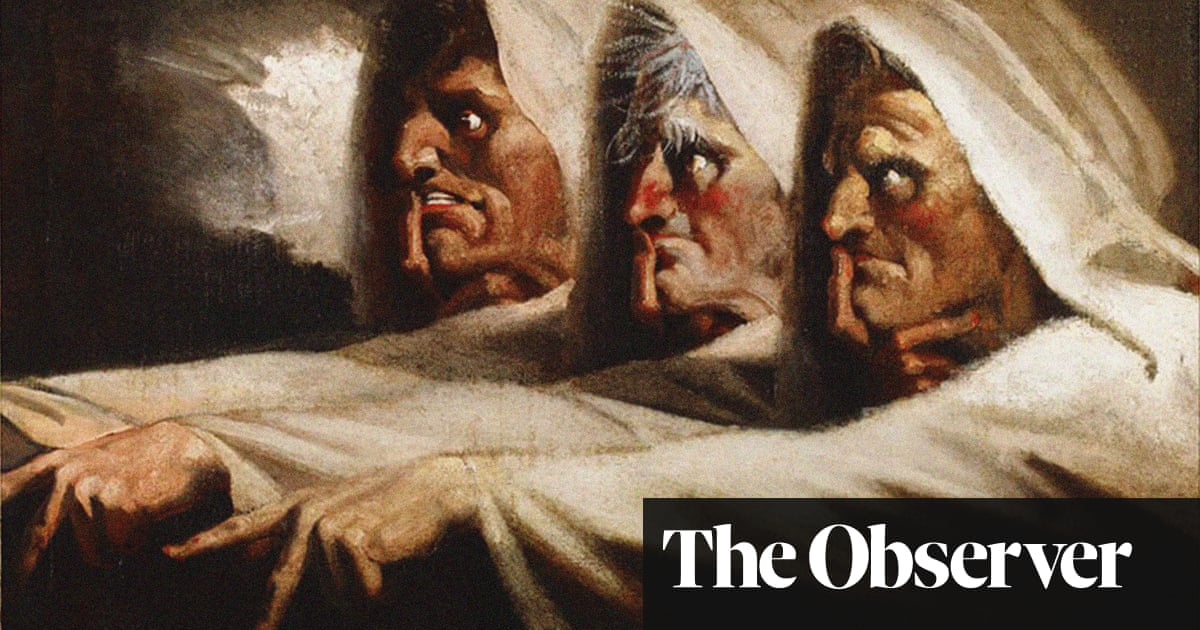
Someone, or something, shadowy has put a strong spell on popular literature aimed at women, once cheekily labelled “chick lit”. This perky genre, packaged in bright covers, jauntily titled and so long a mainstay of the publishing industry, has been slowly transforming into something darker and rich with sorcery, with 2023 set to be a new high point in a growing “witch lit” trend.
“Witches are definitely a big thing, which is exciting and fun,” said Phoebe Morgan, a publisher at Hodder Fiction, “but it also has something to do with a sense that women’s rights are in danger of being stripped away again, with things like the overturning of Roe v Wade in America. These books are often concerned with pregnancy, abortion and abuse, as well as magic.”
Several big forthcoming titles in the adult women’s market are concerned with witches and witchcraft, with female persecution developing as a main theme. Next month, Emilia Hart’s much-heralded Weyward will hit bookshops, telling an epic story of three generations of women entangled with magic. But space around the bubbling cauldron is already crowded. Kirsty Logan’s Now She Is Witch will already have staked its place, with publication this week.
Morgan suspects the historical side of the trend offers escape, as well as a form of explanation. “We often try to explain the present by looking to the past.As our last three years have been plagued by Covid, war, the cost of living crisis and tumultuous politics, it’s natural we should look to fantasy and witchcraft as escape,” she said.
“There are also interesting ideas around witch-hunts in the modern day, the kind that play out on social media – in the past, women were burned at the stake but now it is trial by Twitter.”
Later in the year comes Margaret Meyer’s The Witching Tide, from Phoenix. Set in East Anglia in 1645, it tells of a mute midwife and healer who becomes silent witness to a witch-hunt, led by a sinister new arrival in her village. The theme will be picked up again in Stacey Thomas’s The Revels, about a witchfinder general, and June promises a chill wind when Penguin publishes Ink Blood Sister Scribe by Emma Törzs. With a publicity slogan warning that “some books should never be opened”, it follows a family who must guard a trove of deadly magic books, keeping them safe from a malevolent organisation.
Popular women’s literature has been growing darker for some time, with a surge in historical mystery, vampires, ghosts and the occult, jointly termed “goth lit”. But lots of writers, largely women, are now focusing on stories of marginalised women with hidden powers, the kind of female traditionally hunted down or isolated, in what amounts to a covert cultural move to reclaim the derogatory word “witch”. A scroll through TikTok under the Witchtok hashtag makes the point.
The cover art for these titles is suitably dark and sinister. Intricate cobwebs, feathers, leafless tree silhouettes on backgrounds of dark green or blood red are the hallmarks. “These are often more literary titles that are destined for the big bookshop chains rather than supermarket shelves, and these covers are designed for those customers,” said Morgan.
Taking this cue, the witchcraft at work in Shakespeare’s Macbeth has inspired Kate Hodges’s The Weyward Sisters, published in August by Hodder & Stoughton. Set in the 18th century, it retells the tale of the play’s three witches and begins with a female astronomer meeting three strange old women in Inverness, having been invited there by a Shakespeare scholar to research a possible connection between Shakespeare and the stars.
Staying in Scotland, the Hodder & Stoughton author CS Robertson’s The Trials of Marjorie Crowe will investigate the case of an eccentric woman falsely blamed for the hanging of a young boy.
Female sorcery has been a lively area of young adult literature for decades and this part of the market still bristles with witches’ hats and curses. April sees the arrival of Terry J Benton-Walker’s Blood Debts, a fantasy told from the perspective of two black teenagers dealing with their family’s past and a troubled world of white privilege sprinkled with chaotic magic.












